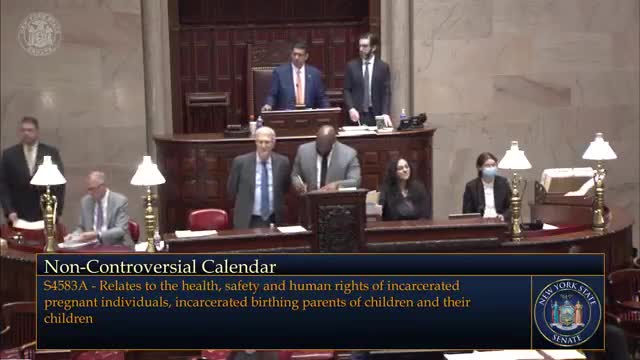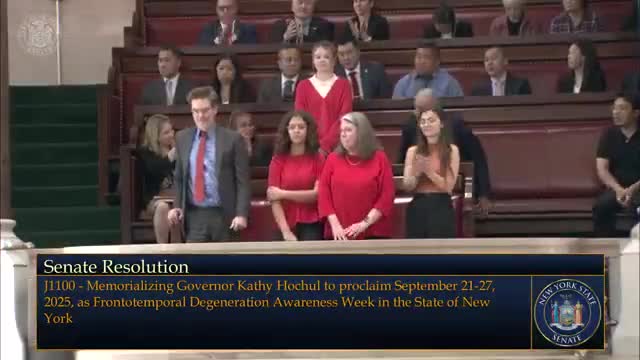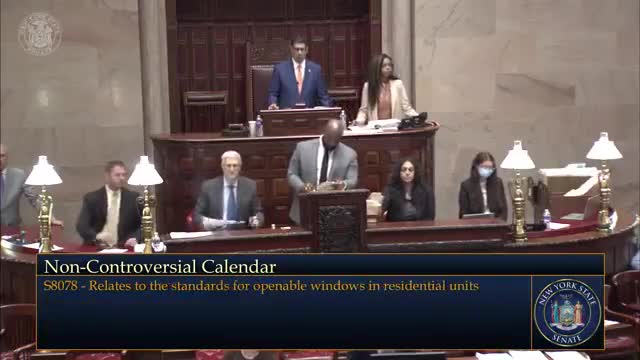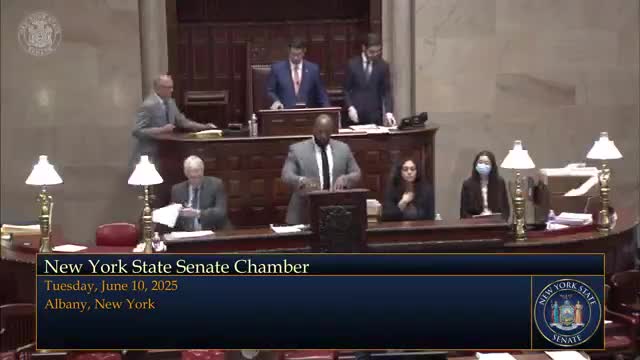Article not found
This article is no longer available. But don't worry—we've gathered other articles that discuss the same topic.

Senate passes bill creating program for infants born to incarcerated parents after heated floor debate

Senate approves requirement for adult sanitary changing stations in large public facilities

Senate approves change allowing mechanical ventilation as alternative to openable windows for certain residential conversions

